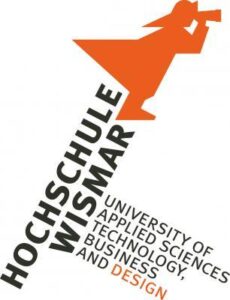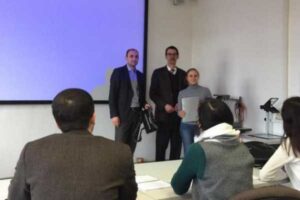March 1, 2017
Senior lecturer Maria Kuntsevych took part in Winter Kolloquium at Hochschule Wismar 2017 for teaching staff on law enforcement and teaching of law disciplines in High School, that took place at Ostinstitut, Fakultät für Wirtschaftswissenschaften, Hochschule Wismar (Wismar, Germany) on January, 28 – February, 10, 2017.
The main results of training are:
- Implicit and explicit ‚civic learning‘ within non-formal education’ (introduction and frame) – the significant role of the intertwinement of history, traditions and self-image of democratic societies with democratic learning processes – clarifying different (inter)national understandings and requirements of ‘civic learning’ e.g. via documents, funding criteria etc. – synergy effects of international exchange between educational institutions applied by the networking concept;
- What is ‘civic learning’ about?’ (sensitization) – the vital aspect of public involvement in democratic processes for social cohabitation – the interrelation of institutionalized politics and democratization of society being dependent on dialogue – the acquisition of democratic key competences for a more democratic society
- ‘Which principles are fundamental to the support of civic education/learning processes?’ (localization) – good judgement and critical faculties as essentials for civic learning – conditions of civic thought and action e.g. basic rights, distribution of power – civic participation as driving force of civic education and its constituting principles
- ‘What are ‚democratic competences’ and how can their multiplying function be displayed?’ (deepening) – the interaction of democratic with individual and social competences and the exemplary nature of the concept for many fields of education – the components of democratic competences (justice, differentiation, historical classification, development of alternative strategies, civic participation, reflection)
- ‘Are there methods and instruments in order to convey democratic competences?‘ (methodological reflection) – introduction to methods and instruments fostering democratic competences
- ‘What is the impact of the competence dimensions above on practical work and are there further qualifying opportunities?’ (reflection and perspectives) – competences tying up with available knowledge, self-image and the attitude towards them – selection of funding.



